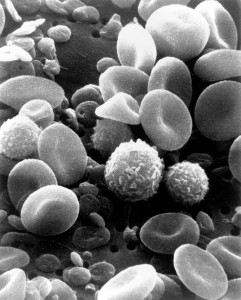Have you ever thought about how the human body manages to protect itself from the myriad diseases and infections that could attack its cells at any given moment? The key player in this defense is the immune system, which is responsible for the expulsion of antigens from the body. Paradoxically, however, this system also plays a role in the development of chronically destructive conditions like autoimmune diseases, asthma, and cancer.
In a novel study, researchers from Yale professor Dr. Alfred Bothwell’s laboratory have shown that the protein Dkk-1, which is secreted by platelets, is important to the control of the immune system, influencing the development of inflammatory diseases. Chae, Bothwell, and colleagues demonstrated that near-total systemic removal of Dkk-1 reduced the severity of inflammation in mice with induced symptoms of asthma and a parasitic skin infection called Leishmaniasis, a lesion-causing chronic disease. This finding establishes a direct connection between the immune system and platelets, which are usually characterized by their involvement in blood clotting rather than inflammation.

This work also suggests that Dkk-1 is a promising target for treatments of inflammatory diseases: small-molecule inhibitors of Dkk-1, which bind to the protein in a way that inactivates it, can potentially act as drugs to treat conditions caused by elevated levels of the protein.
“It…has [a] surprising ability to regulate the immune system… So this [protein] is probably very relevant to asthma, as we’ve shown, and autoimmunity, atherosclerosis, and various types of cancers,” said Bothwell. “I don’t know of a comparable molecule, frankly.”
